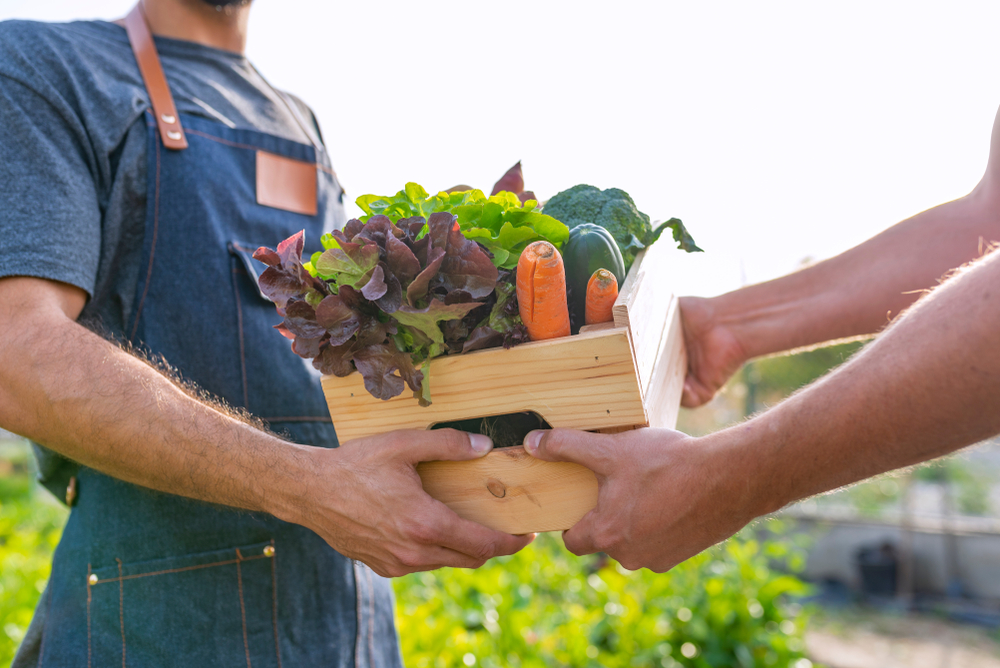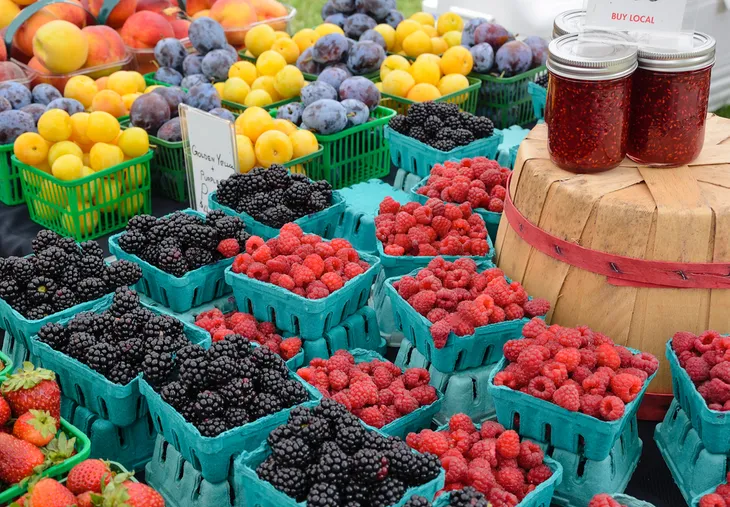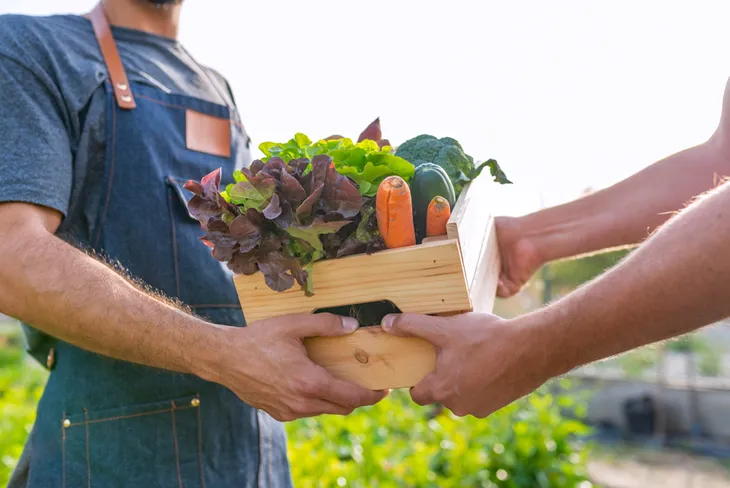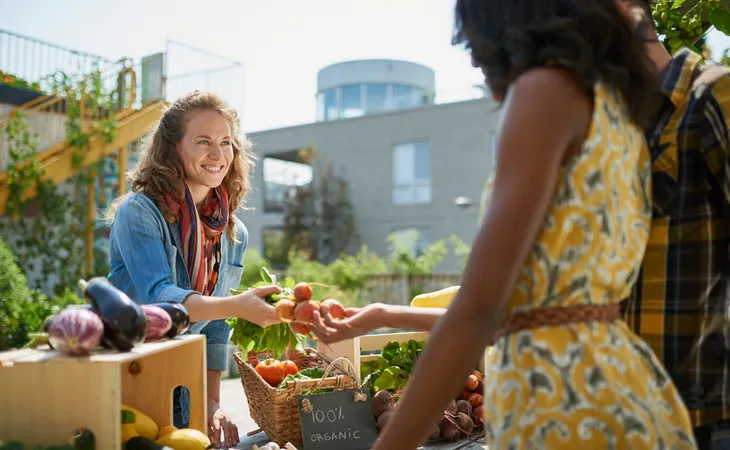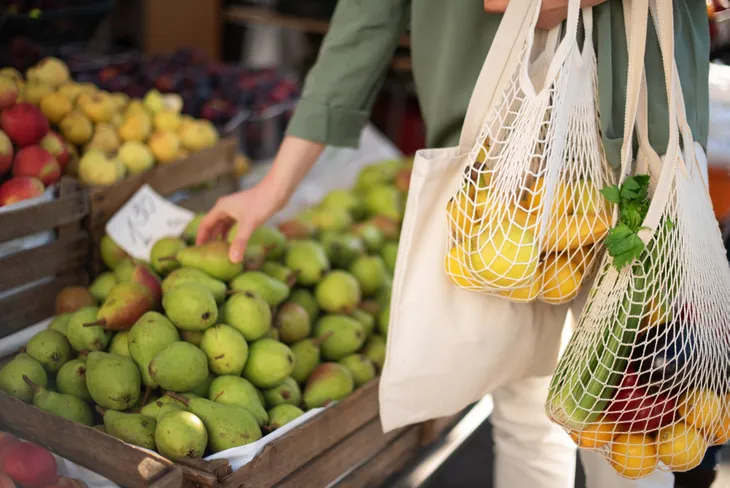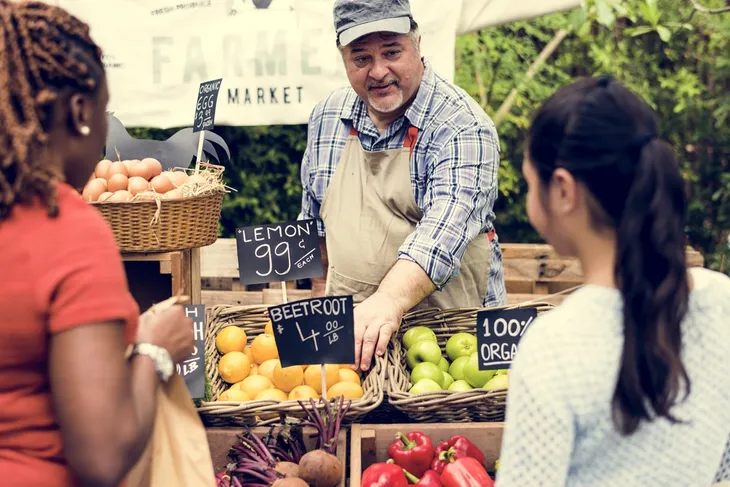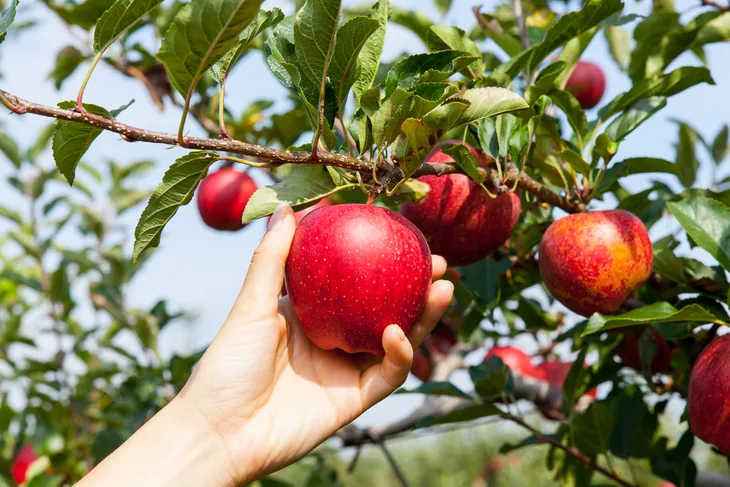By late summer the lakes and pool warm up with the lazy, humid days of summer. However, the farmer’s markets also heat up—with ripe, seasonal produce and fruit and vegetable stands heaped with impressive selections. The benefits that a farmer’s market offers shoppers are as bountiful as the wares.
Here are eight convincing reasons to shop market-style for the remainder of the summer and into early fall…
Fresh and Local
If you’re seeking the freshest fruits and vegetables around, look no further than your local farmer’s market. Not only is the produce grown locally, which means it’s picked at peak ripeness and it travels very little distance to the farmer’s market stall where it’s sold to customers (and doesn’t sit in a truck or cooler for weeks or months before it’s sold)—the fact that you’re eating fruits and veggies grown in the environment you live in means that produce likely contains essential nutrients needed for strong immunity and germs circulating in that specific atmosphere.
Picked at Peak Season
If you think the fruits and vegetables offered at your local grocery store are fresh—think again! Most times, they are plucked or dug up before they’re ripe to extend shelf life. However, picking early often compromises taste (you know this if you’ve ever eaten a grocer’s peach or mango in January).
Alternately, the produce you’ll find offered at a local farmers market is grown seasonally and harvested at its freshest point, which means taste is also at the highest point.
Peak Nutrition
Akin to taste, nutrition is also compromised when fruits and veggies are harvested before they’re ripe. To allow the fruit to achieve its highest level of vitamins, nutrients, and phytochemicals, it should be plucked when ripe and in season to glean the most potent nutritional value.
Support Your Local Economy
For obvious reasons, choosing to shop locally at your nearest farmers market supports farmers and your local community by keeping consumer money directly in your area—funneled from you directly to the farmer. He or she may even be the person planting, harvesting, and selling you the fruit or veggies at the market stall.
Plus, most grocers (unless they are local and organic specified) stock produce from massive agribusiness (or GMO food conglomerates). Support your local community by buying locally.
Save Energy
Do you know how long that plum or pear traveled—from farm to grocer and from grocer to your table? If you’re buying from a large grocery retailer, your produce was likely transported over thousands of miles, which eats up enormous amounts of time (i.e., storage, travel), money (i.e., marketing), resources (i.e., picking, packaging), and energy (i.e., transportation).
Research from Princeton estimates that only 10-percent of fossil fuels go towards global food system production; while the remaining 90-percent is wasted on packaging, marketing, and food transportation costs.
Food Affordability
I bet you can find fresher, cheaper, and better tasting fruits and vegetables at your farmer’s market then you can at your large grocery retailer. Organic foods are typically a lot more affordable straight from the farmer than from a specialty “organic” store.
Variety is the Spice of Farmers Markets
At my local grocery store, I’m typically forced to choose from a very limited selection of produce. Sure, I can find the odd bunch of kale or Swiss chard, but typically I’m stuck with packaged spinach. However, at the market, the variety of fruits and veggies is overwhelming. Plus, I have the option to try kale from several farmers and pick my very favorite variety (as they all grow differently).
Knowledge of Food Source
It’s confounding that many children have no idea that apples grow on trees or potatoes are dug up from the ground. However, regular trips to the local market will provide this insight. Help your family better connect with the foods they are eating by educating them at the source. Talk directly to farmers at their market stalls and visit the farm to pick your own in season strawberries or corn.
